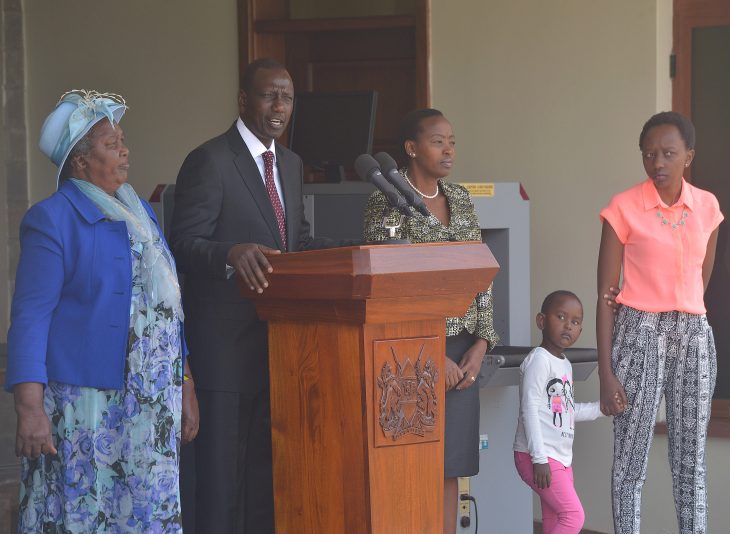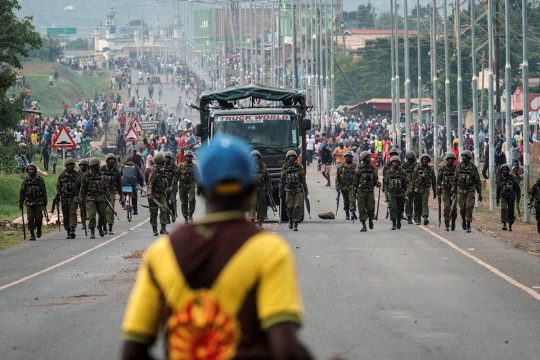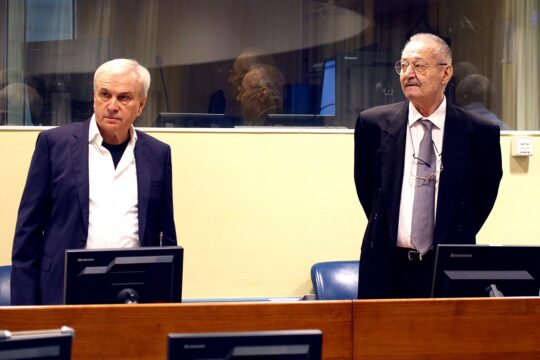The International Criminal Court’s decision to drop its trial of Kenyan Deputy President William Ruto and journalist Joshua Arap Sang marked the week in transitional justice. According to Judge Chile Eboe-Osuji, this “mistrial” is due to witness intimidation and political interference.
Technically this “mistrial” means the two could still be prosecuted in future for “crimes against humanity” committed in post-election violence in 2007 and 2008, if the ICC can prove that they interfered with justice to get the trial dropped. Nevertheless, this decision can only be seen as a victory for the Kenyan authorities, a defeat for international justice and a disappointment for the victims. The ICC already dropped charges against Kenyan President Uhuru Kenyatta, and so the original six suspects indicted in the Kenya case (the “Ocampo Six”) have now all escaped the law.
So too has Vojislav Seselj, who was acquitted by the International Criminal Tribunal for former Yugoslavia after he also intimidated witnesses during his trial.
In Kenya and Serbia we see once again how difficult it is to prosecute people who are still in power.
In these two cases, some critics may also put the blame on weak and faulty prosecution work in the face of regimes and men who will use any means, legal or illegal, to escape justice.
It is nevertheless not certain that the withdrawal of charges against Ruto and Sang is really a victory for Kenya as claimed by President Kenyatta, who had skillfully turned fighting this case into a “national cause”. Civil society and Kenyan victims’ associations know that this de facto impunity granted to the suspects can only encourage more violence in this divided country.
“While Ruto and his supporters may celebrate the ICC decision, the victims who have already suffered so much may well now end up without justice or the help they need,” says Elizabeth Evenson of Human Rights Watch. The violence left some 1,100 dead and forced 350,000 Kenyans to flee their homes. No one has so far been convicted for these crimes, neither before the ICC nor in a Kenyan court.
As JusticeInfo Editorial Advisor Pierre Hazan writes of the ICTY, “an international tribunal can only be an efficient tool for reconciliation if it is part of a much wider process of political rapprochement between former enemies”.
The same week, in a remarkably short-sighted vision of history, the Serbian presidency honoured Omar Al Bashir, who is wanted by the ICC notably for genocide in Darfur, explaining that the Sudanese Head of State did not recognize the independence of Kosovo.
Denouncing further abuses, Human Rights Watch also criticized Tunisia’s policy towards homosexuals, still persecuted and harassed under a colonial law five years after the start of the country’s democratic transition.







